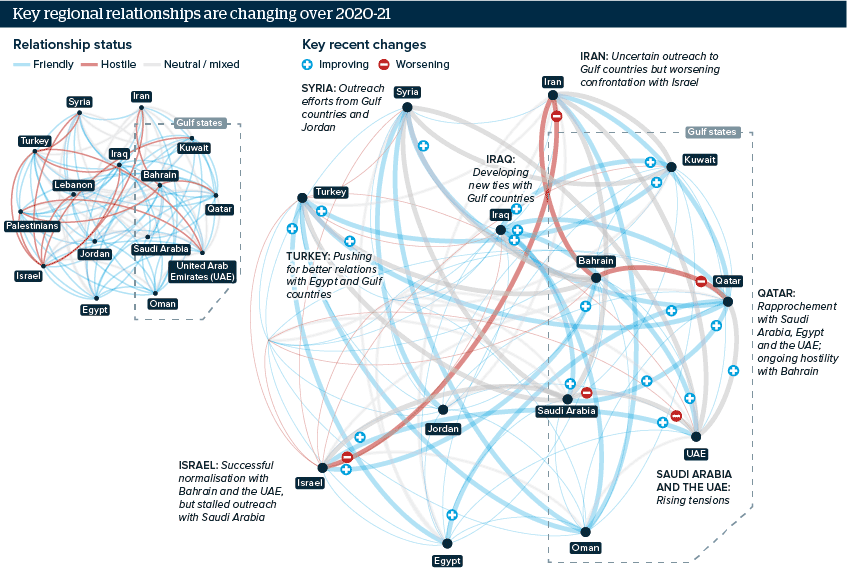Changing Mideast alliances will have regional drivers
An aspirational regional summit in Iraq highlights how the Middle East is moving away from the Trump era
Source: Oxford Analytica
Outlook
As Iraq prepares to host a regional conference on August 28 bringing together key players, it is becoming clear that ties are shifting in 2021 -- and the change of US administration is a major factor. The reconciliation between Qatar and Saudi Arabia looks increasingly solid, but Riyadh and Abu Dhabi, close partners in engaging with former President Donald Trump, have increasingly different interests, including over Israel ties.
President Joe Biden’s hopes of negotiations with Tehran have pushed Gulf countries -- already reaching out to allied Syria and Iraq -- to launch a cautious dialogue with it, though prospects depend on the nuclear deal outcome. Meanwhile, Israel is intensifying its focus on standing alone against Tehran.
Impacts
- The Baghdad summit outcome may be largely rhetorical, but the habit of seeking regional solutions without Washington will grow.
- Turkey is moderating its attitude, hoping for better relations with Egypt and the Gulf countries, even staunch ideological opponent the UAE.
- Bahrain will hold back from friendly ties with Qatar, and unofficial hostility may persist in other, formally repaired, relations with Doha.
- The Israeli ‘normalisation agenda’, pushed by Trump, will stall, with Saudi Arabia holding back and Kuwait keeping Palestinian loyalties.
